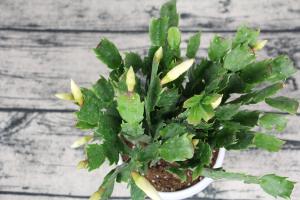Best Time to Plant Tomatoes in Colorado
Tomatoes are a popular garden crop in Colorado, with their juicy red fruit adding with flavor and nutrition to many meals. However, as a temperate region, Colorado's weather can be unpredictable, making it challenging to know when to plant tomatoes. In this article, we will explore the best time to plant tomatoes in Colorado and the essential factors to consider before planting.
Factors to Consider When Planting Tomatoes in Colorado
Before planting tomatoes in Colorado, there are several essential factors to consider to ensure a healthy crop. One of the main considerations is the region's climate, which affects the growing season and the type of tomatoes to plant. Colorado has a semi-arid climate with low humidity levels, intense sunlight, and temperature fluctuations, which affects the plant's growth rate and health.
Another important consideration is the timing of planting. In Colorado, tomatoes require warm soils, which means that the best time to plant them is between late May and early June, when the soil temperature has warmed up. Planting too early or late can affect the plant's growth rate and ability to produce fruit. The ideal temperature for planting ranges between 60 and 70 degrees Fahrenheit.
The type of soil used is also an essential factor to consider. The soil should be well-draining and have organic matter, which provides the necessary nutrients and improves moisture retention. It is advisable to supplement the soil with compost, peat moss, or wood chips to enhance soil fertility.
Types of tomatoes to plant in Colorado
Colorado's climate and growing season require specific types of tomato varieties that can withstand the region's temperatures and dry climate. Some of the best types of tomatoes to plant in Colorado include heirloom varieties such as Black Krim, Brandywine, and Cherokee Purple.
Other varieties include the Early Girl, which matures early and growing well in areas with short growing seasons. The Celebrity variety is another excellent option for Colorado, with a disease-resistant characteristic and producing fruits throughout the growing season.
Care and Maintenance of Tomato Plants in Colorado
Once the tomatoes are planted, proper care and maintenance are essential to ensure a healthy crop. Watering the plants is crucial, particularly during the hot, dry Colorado summer months. The frequency and amount of water required depend on the tomato variety, soil type, and weather conditions.
Fertilizing the plants is another essential aspect of tomato plant care. Colorado soils are often deficient in essential nutrients such as nitrogen, phosphorus, and potassium, which are significant in the plant's growth and fruit production. Applying a 5-10-10 NPK fertilizer during the planting and growing period can improve the plant's growth rate and fruit production.
Pest and disease control measures are also necessary to maintain healthy tomato plants. Common pests and diseases that affect tomato plants in Colorado include aphids, leafhoppers, whiteflies, and tomato blight. Applying natural pest repellents like neem oil, planting marigolds, and practicing crop rotation can help control pests and diseases without the use of harmful chemicals.
Conclusion
In conclusion, planting tomatoes in Colorado requires careful consideration of the region's climate, soil type, timing, and the variety of tomatoes to plant. With proper care and maintenance, tomato plants can thrive in Colorado, producing delicious and nutritious fruits for your meals.

 how many times do yo...
how many times do yo... how many planted tre...
how many planted tre... how many pine trees ...
how many pine trees ... how many pecan trees...
how many pecan trees... how many plants comp...
how many plants comp... how many plants can ...
how many plants can ... how many plants and ...
how many plants and ... how many pepper plan...
how many pepper plan...






























